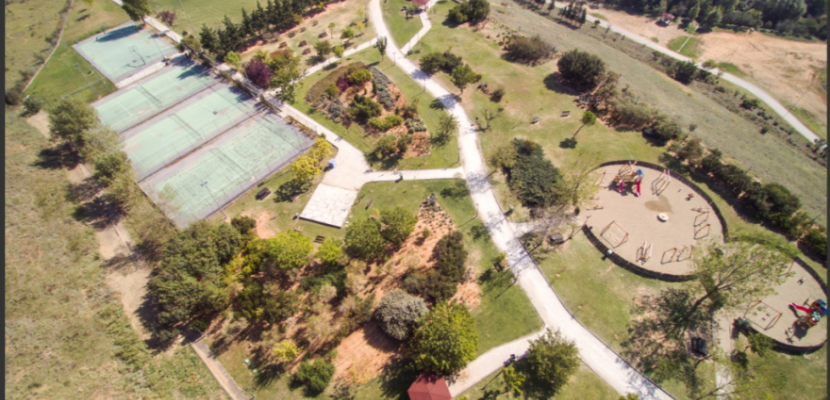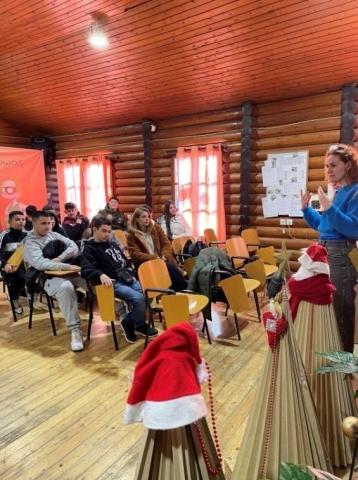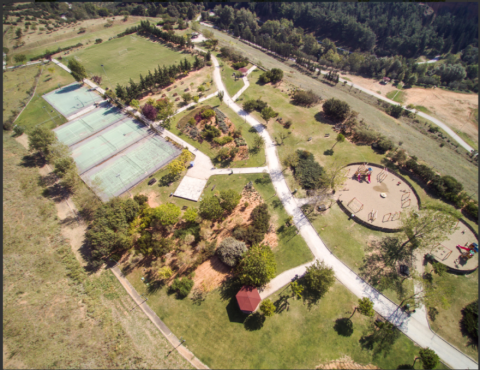
Solid waste management for large-scale events in Thermi Environmental Park

About this good practice
The park receives 14,837 children from school trips annually and hosts cultural and sporting events. So, an organized and planned waste management system within the park became imperative. FODSA contributes to environmental awareness and proper waste management. As a result, the park is kept clean throughout events.
Schools participate in environmental education programs and workshops organized by the solid waste management authority, focusing on recycling and environmental protection. An increased visitation on weekends and holidays and numerous organizations hosting sports and cultural events, generates substantial amounts of waste. The following initiatives were undertaken:
1) Collaboration with neighbouring municipalities to procure green waste bins
2) Cooperation with the recycling center (blue bins)
3) On-site composting
4) Increase of bins and strategic implementation (accessible locations)
5) Staff trained in waste management and composting practices
For example, the park successfully hosted the Olympic Day event for two years, attracting over 2,000 attendees.
6) Leave No Trace policy: The initiative began with telephone briefings for schools scheduling visits, followed by on-site education upon arrival.
The main stakeholders and beneficiaries of this practice are the municipalities and regions, but primarily the citizens.
Expert opinion
Resources needed
- Permanent staff (approximately 5 people), with in-depth knowledge of the park's operations and the activities conducted within it.
- Own contribution budget
-The municipalities supply the bins.
Evidence of success
Students increased from 4,663 in 2015 to 14,837 in 2024 (220%). Source-separated collection, composting and extra bins, prevent litter accumulation. Collaboration with municipalities, schools and organizations approves the success of the practices. On-site composting from organic waste and coffee grounds produces compost used in the park itself and reduces waste sent to landfills. Education programs provided to schools and the "Leave No Trace" policy have increased environmental awareness.
Potential for learning or transfer
The practice highlights the significance of waste management in public outdoor spaces, especially those that experience high visitation on a weekly basis. Recreational and sports areas attract large crowds. In the 24 years since its opening and after the COVID-19 pandemic, the park has an increase in visitors. So, the park's waste management guidelines constantly update. The variety of source-separation channels for common materials (plastic, paper, glass, and organic waste), along with easily accessible facilities for these channels, contribute to minimizing the environmental impact of outdoor activities. Also, they educate visitors and guide them towards to zero-waste societies. Public authorities and local governments collaborate for optimal results. The environmental education of children who visit the park is a plus (environmental briefings on recycling/school trips). Children receive information for the recycling channels, and the designated composting area in the park.



